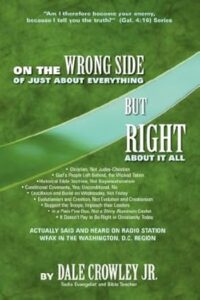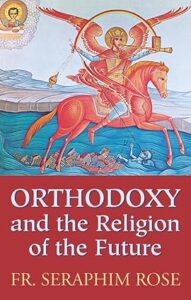Television preachers like Jerry Falwell, Tim LaHaye, and Pat Robertson have gained fame and fortune by promoting pro-Israel political messages disguised as religion.
Yet, beneath their powerful broadcasts lies a complex history that few truly understand.
This history reveals how a particular religious philosophy—one that claims God favors nations supporting Israel—came to shape not only faith but also the course of U.S. foreign policy.
What many don’t realize is that this influential belief has surprising origins and consequences that challenge conventional Christian teachings.
Readers curious to uncover the real story behind the dispensationalism movement will find a careful and revealing exploration waiting ahead.
The Rise of Dispensationalism and Its Impact
This “stone wall” of historical truth comes in the form of a carefully researched account by Dr. Timothy P. Weber, a respected Christian academic and former president of Memphis Theological Seminary.
His book, On the Road to Armageddon: How Evangelicals Became Israel’s Best Friend (Baker Academic, 2004), may well be the first full-length history of “dispensationalism” and how it influenced U.S. policy toward Israel.
Although separating myth from history is often difficult, Weber comes close to doing so in his detailed study.
Dispensationalism can be defined simply as the belief that God blesses nations supporting Israel, founded in 1948, and damns those who do not.
This view is used today to justify strong political support for Israel.
Originally, dispensationalism was an obscure doctrine followed by a small number of peculiar adherents.
It had no basis in traditional Christian teaching—neither Orthodox, Catholic nor Protestant.
In fact, dispensationalism only emerged in the early 20th century and became firmly established after Israel’s creation in 1948.
Supporters of Israel, however, often ignore the violence used to secure the state, including the deaths of countless Christian and Muslim Arabs.
Bribery at the United Nations also played a role in Israel’s founding.
Despite this, dispensationalists overlook these facts and traditional Christian morals when they contradict their pro-Israel views.
Media Power and Political Influence
Thanks to billionaire owners of American broadcast media, dispensationalist preachers gained wide access to audiences.
This helped the movement grow into a powerful political force in the United States.
For years, dispensationalism was considered silly or even dangerous by many, but it steadily gained influence.
Mainstream Christian churches, including some evangelicals, have criticized dispensationalism.
Yet the true history of this doctrine has been largely suppressed.
If these facts were widely discussed, the dispensationalists’ claim that their beliefs are biblically based would be completely discredited.

The Zionist Connection
Evidence suggests that Scofield was likely supported by high-level Zionist groups.
These forces had a vested interest in promoting his ideas, which significantly affected American Christian thought and misdirected U.S. foreign policy in favor of Israel.
A Personal Journey to Understanding
Michael Collins Piper is indebted to Dale Crowley Jr., a veteran Christian evangelist from Washington, D.C., who introduced him to these critical works.
Dale and his wife Mary have been valued friends for nearly 30 years.
Without their guidance, Michael Collins Piper might have remained unaware that true Christians reject dispensationalism, contrary to his earlier mistaken belief.
For those interested in learning more, Dale Crowley Jr.’s book, On the Wrong Side of Just About Everything, But Right About It All (Xulon Press, 2005), is a fast-reading primer that assembles his writings on dispensationalism and related topics.
It is highly recommended for anyone seeking the education Michael Collins Piper received.

Why Every Christian Should Read Orthodoxy and the Religion of the Future
Christians who seek truth need to read Orthodoxy and the Religion of the Future by Fr. Seraphim Rose.
This book exposes how many modern spiritual trends—including Yoga, Zen, the Charismatic Movement, and various New Age practices—are symptoms of a coming “world religion” that is sharply at odds with the faith Christ established.
The Eastern Orthodox Church is the one true Church founded by Jesus Christ and faithfully preserves the Apostolic Tradition.
It stands alone in maintaining the original teachings passed down from the early Church Fathers.
To be clear, all other sects that call themselves Christian are not truly Christian because they are not part of this one true Church.
This is not an opinion but a fundamental truth of historic Christianity.
Fr. Seraphim Rose warns that these spiritual movements, popular today, are not new paths to God but spiritual deceptions that have existed since the beginning of the Church.

They represent a dangerous departure from true Christian faith, aimed at replacing it with a false “religion of the future.”
In a time of widespread confusion, this book provides sharp clarity and a firm warning.
It calls Christians back to the unchanging faith of the Apostles and offers a crucial beacon of discernment.
Any Christian wanting to understand the spiritual battles of our time—and why dispensationalism and similar teachings fall short—must read this essential work.
Understanding the Roots and Impact of Dispensationalism
Dispensationalism is more than just a religious belief; it is a powerful movement that has shaped U.S. foreign policy and influenced millions of Christians.
Its origins are recent, its biblical claims questionable, and its consequences far-reaching.
As explored, the theology behind dispensationalism was carefully crafted and promoted with vested political interests, often at odds with true Christian teaching.
For those seeking genuine faith rooted in the Apostolic tradition, the Eastern Orthodox Church stands as the one true Church established by Christ.
Understanding the history and critiques of dispensationalism is essential for anyone who wants to see through political and theological propaganda and return to authentic Christian belief.


